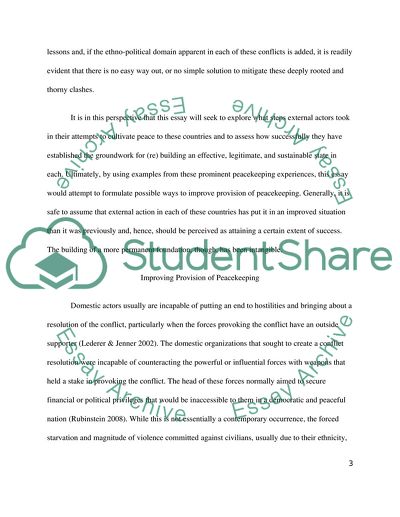Cite this document
(The Development of Sustainable Peace and Peacekeeping Operations Essay, n.d.)
The Development of Sustainable Peace and Peacekeeping Operations Essay. Retrieved from https://studentshare.org/people/1736657-how-might-the-provision-of-peacekeeping-be-improved
The Development of Sustainable Peace and Peacekeeping Operations Essay. Retrieved from https://studentshare.org/people/1736657-how-might-the-provision-of-peacekeeping-be-improved
(The Development of Sustainable Peace and Peacekeeping Operations Essay)
The Development of Sustainable Peace and Peacekeeping Operations Essay. https://studentshare.org/people/1736657-how-might-the-provision-of-peacekeeping-be-improved.
The Development of Sustainable Peace and Peacekeeping Operations Essay. https://studentshare.org/people/1736657-how-might-the-provision-of-peacekeeping-be-improved.
“The Development of Sustainable Peace and Peacekeeping Operations Essay”, n.d. https://studentshare.org/people/1736657-how-might-the-provision-of-peacekeeping-be-improved.


